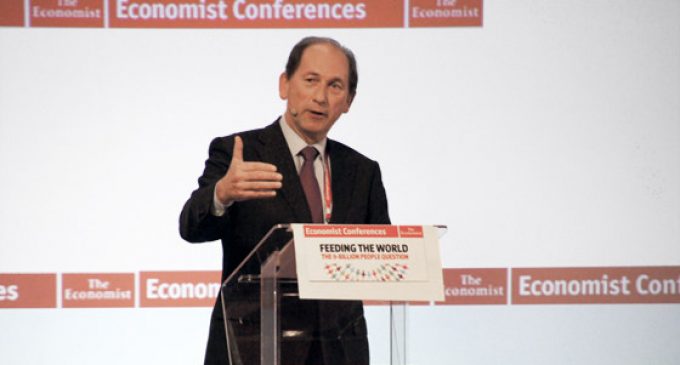Tackling the Global Food Crisis

Private sector companies have an important role to play in addressing the global food crisis, according to Nestlé chief executive Paul Bulcke. In a speech at the ‘Feeding the World’ Economist Conference in Geneva, Switzerland, Paul Bulcke said that the increasing world population, food waste, worldwide water shortages and the issue of using food for biofuels among others, all impact on food security.
Despite the challenges, there are ways and solutions to address this, he emphasised. Governments, public and private sectors and civil society all need to work together to address the issue of food security. He continued: “With an estimated 70% of global poverty in rural areas, investment in building agricultural capacity is crucial.”
Nestlé works with nearly 600,000 farmers worldwide by providing technical assistance, forming partnerships and giving financial support. Its ‘farm to factory’ initiative – Sustainable Agriculture Initiative at Nestlé – supports farmers and promotes sustainable development in agriculture globally. It is part of the Sustainable Agriculture Initiative which unites all interested food companies, primary processors and traders.
Nestlé’s partnerships with agencies such as the East African Dairy Development Board help dairy farmers to boost sustainable milk production in Kenya and Uganda. And the company’s investment in the Nestlé Cocoa Plan and the Nescafé Plan shows its commitment to improve the supply chain, provide technical expertise, support farmer training and enhance living conditions for farming communities. This work is part of what Nestlé calls ‘Creating Shared Value’, an approach to business that aims to create value for the company’s shareholders at the same time as for those communities where it operates.
The ‘Feeding the World’ event is hosted by Economist Conferences – headed by The Economist newspaper. The summit brings together over 200 senior executives from around the world representing agribusiness, food manufacturing, policy, international agencies, science and the NGO community. It aims to provide action plans and new solutions to food security challenges.

































